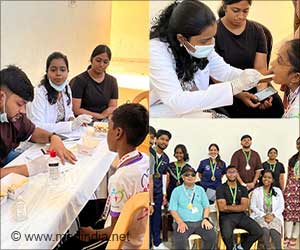HIV-positive kidney transplant recipients could have the same one-year survival rates for themselves and their donor organs as those without HIV, if certain risk factors for transplant failure are recognized and tightly managed according to a new study.
Earlier, HIV patients were not considered transplant candidates as researchers thought that the survival rates after transplantation were greatly compromised by the disease, which cripples the body's immune system.Also, transplant patients take drugs that suppress their immune systems in order to prevent organ rejection, a regimen thought to further threaten their already fragile immune systems.
"Kidney transplantation is a viable and necessary option for HIV-positive patients with chronic kidney disease, especially since kidney disease is taking such a large toll on this group," said Jayme Locke, M.D., a resident in the Department of Surgery at Johns Hopkins University School of Medicine, and lead researcher of the study described in the January issue of the Archives of Surgery.
Johns Hopkins researchers have said that study results are in part a reflection of newer antiretroviral therapies that have reduced HIV death rates by 80 percent.
For the study, the researchers examined the one-year kidney survival rates and one-year patient survival rates of 36,492 HIV-negative and 100 HIV-positive kidney transplant recipients listed on the United Organ Sharing Network (UNOS) list who received transplants between January 2004 and June 2006.
However, they did not take into account those under 18 and anyone who had multi-organ transplantation.
Advertisement
However, kidney survival rates in these two groups showed that HIV-negative recipients had a 94.6 percent survival rate, compared to 87.9 percent in people with HIV.
Advertisement
On removing this group from the rate comparison, both HIV-positive and HIV-negative groups were found to have equal kidney and patient survival rates.
According to Locke, this is significant because DGF can be avoided by controlling certain negative risk factors such as advanced organ donor age, deceased-donor kidneys (vs. live-donor kidneys) and long cold ischemic times (the time the kidney is without blood flow before transplant).
Source-ANI
SRM














